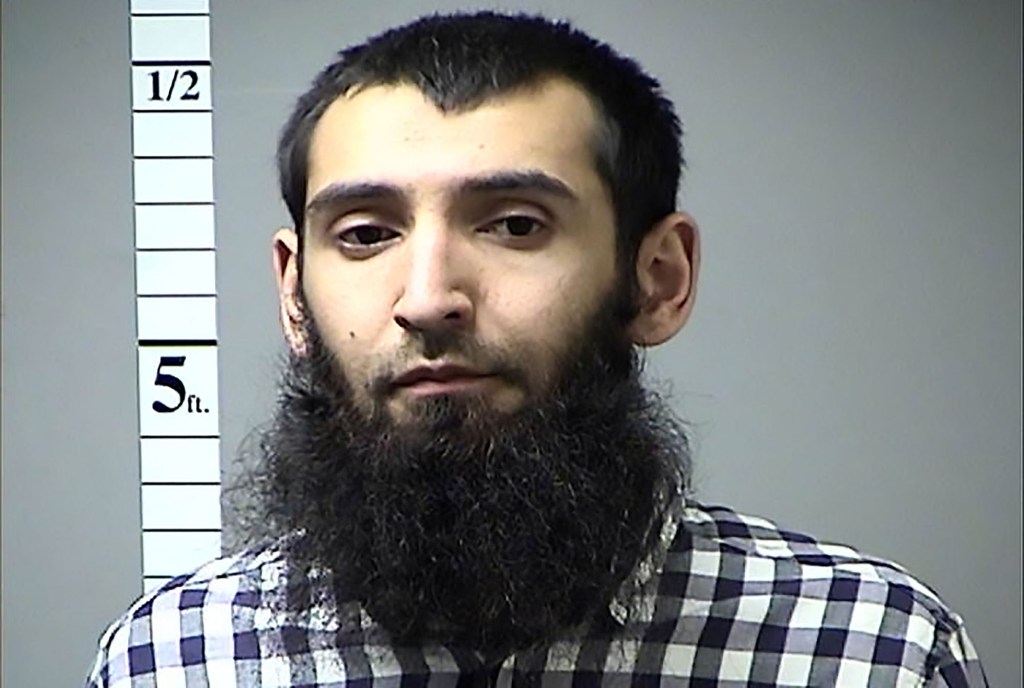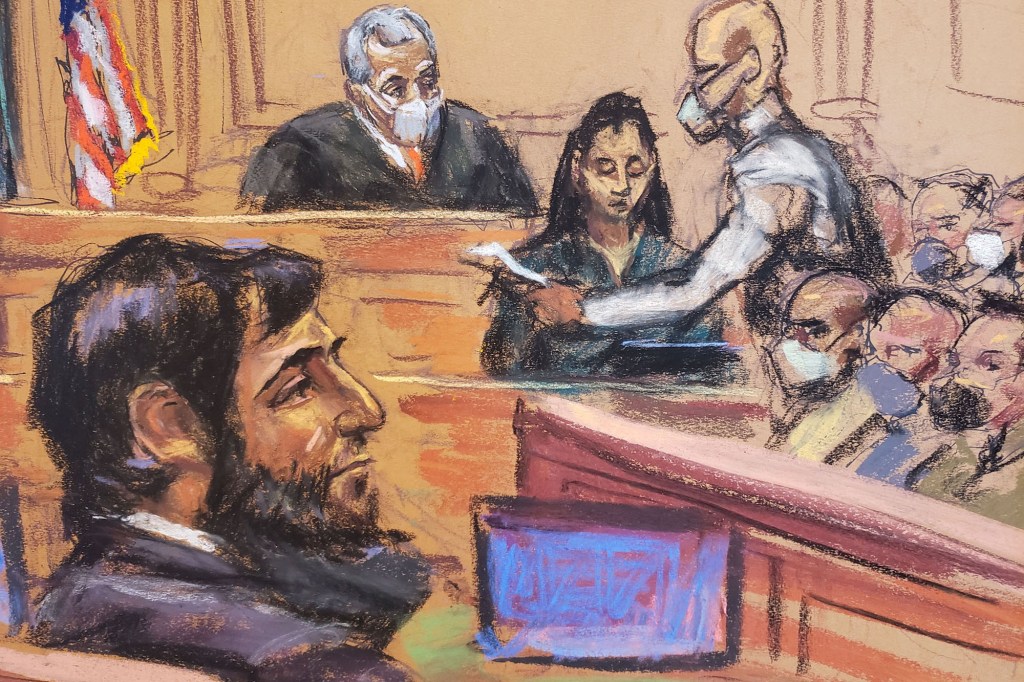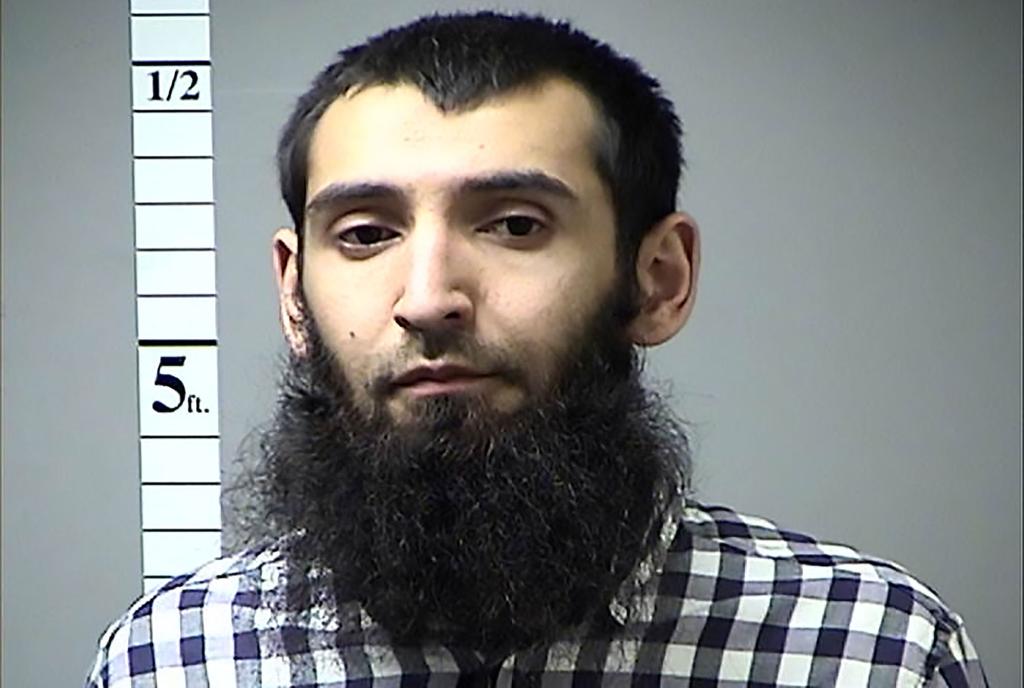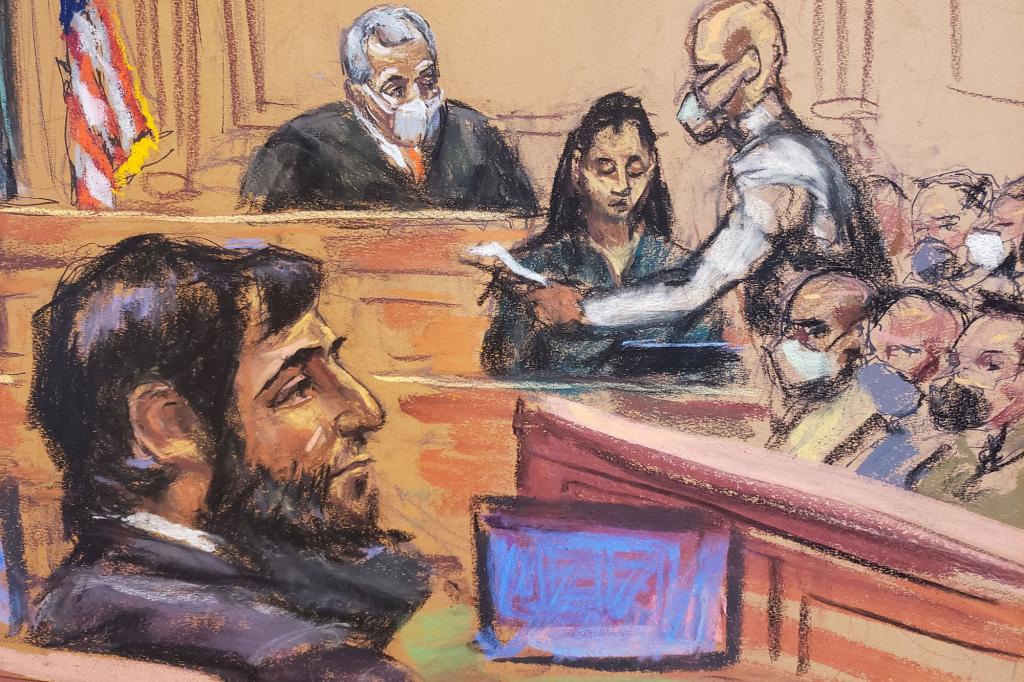Islamic fanatic who mowed down NYC bicyclists could get death penalty
The Manhattan jury set to decide whether West Side Highway terrorist Sayfullo Saipov should be executed will hear the “depths of sorrow” experienced by loved ones of the eight people slaughtered in the truck-driving rampage, federal prosecutors said in court Monday.
The death penalty phase of Saipov’s terrorism trial opened in Manhattan federal court, with prosecutor Amanda Houle telling the panel to expect harrowing testimony from family members of those slain in the 2017 attack, as well as from survivors.
“You have learned a lot about the defendant’s attack for ISIS – about how he crushed a crowd of innocent people and turned their joy to sorrow,” Houle told jurors, who convicted Saipov, 35, of 28 counts on Jan. 26 after the guilt phase of the trial.
“You’ve not yet learned about the depths of that sorrow,” she continued.
Saipov, originally from Uzbekistan, fatally struck eight people and injured more than a dozen others in an ISIS-inspired truck attack on the West Side Highway bike path on Oct. 31, 2017.
His rampage killed a Belgian tourist, five Argentinean friends and two Americans. It also left others with permanent injuries, including a woman who lost her legs.
Hours after the attack, he showed no remorse and even smiled and asked for an ISIS flag to hang in his hospital room where he was being interviewed by an FBI agent.
Evidence in the penalty phase of the trial – which is expected to stretch a number of weeks – will include testimony by a mother who held her daughter as she died after being rammed by Saipov, Houle said.
A father whose son was killed by the Islamic extremist will tell jurors how he gets in his car and drives to nowhere twice each day in an effort to clear his mind, she added.
“Several of the defendant’s surviving victims will testify,” Houle said. “It is nearly impossible for them to put into words the pain and the terror they have endured.”
The jury will have to unanimously vote to put Saipov to death for him to be executed. He’ll be sentenced to life in prison if a single panel member declines to do so.
If jurors decide in favor of the death penalty, it could be the first execution in New York since 1963. Although the state no longer employs capital punishment, Saipov was found guilty of federal crimes and so is eligible for the sentence.
The last time someone was put to death for a federal crime in the Empire State was in 1954.
Prosecutors will attempt to show that Saipov is still a danger behind bars and has threatened to slit the throats of correction officers in the Brooklyn jail where he is imprisoned, Houle said.
“He is dangerous even in prison, so the United States is seeking the most severe penalty that the law provides: a sentence of death,” she said.
A defense attorney for Saipov, David Stern, told jurors in his opening statement that they’re in a unique position and will have to make a moral decision that they will have to live with for the rest of their lives.
“We’re asking you to choose life,” Stern Said. “Look deep in your heart and soul and say there’s already been enough death.”
Saipov’s defense team will call witnesses who will describe the harsh and completely secure maximum security prison where he’ll ultimately die if he is spared the death penalty.
“He’ll never eat the food he loves again. Never taste the food he grew up eating,” Stern said of the conditions at ADX Florence prison in Colorado.
“He’ll lose almost everything that makes life sweet,” he said, adding Saipov will be locked in a parking space-sized cell for 23 hours a day.
His defense attorneys will also show jurors that Saipov grew up in a large, loving family in Uzbekistan, where the practice of religion was barred for decades because of Soviet rule. It was only after Saipov emigrated to America that he became radicalized by absorbing ISIS propaganda while working as a long-haul truck driver, Stern said.
ISIS leaders targeted Uzbek immigrants with propaganda because they tended to have little knowledge of Islam to combat their extremist views. Stern said immigrants like Saipov were viewed by ISIS as “blank slates on which they could etch their hateful ideology.”
To close his opening statement, Stern urged the jurors to end a “cycle of death” by rejecting a death sentence.
“If one of you embraces hope and growth and change you will have done your individual duty,” he said. “Justice will prevail over barbarism.”













